|
|
Last Modified on Mar 24, 2023
Are you curious about whether an LLC can purchase a property? The good news is, the answer is yes! If you’re looking to expand your business and acquire real estate, buying a property with your LLC can be a smart move. However, navigating the legal and financial aspects of this process can be challenging. In this blog post, we’ll delve into the ins and outs of buying a house with an LLC, including potential obstacles to be aware of.
What Is An LLC?
A limited liability company (LLC) is a unique type of business structure that provides certain advantages to business owners, particularly in terms of liability protection. By organizing your business as an LLC, you can shield your personal assets from any legal or financial issues that may arise as a result of your business activities. LLCs can be owned by a variety of entities, including individuals, corporations, other LLCs, and even foreign entities. In fact, some states allow LLCs to have a single owner. To ensure that you’re fully compliant with all relevant laws and regulations, it’s important to research the specific LLC laws in the state where your property is located and be aware of any other legal considerations that may come into play.
What Are The Advantages?
When you purchase a house with an LLC, you can take advantage of several benefits that come with this business structure. These advantages include increased privacy, limited liability, tax benefits, and potential partnership opportunities. One major advantage of buying a house with an LLC is the ability to keep your personal and business affairs separate. Let’s take a closer look at each of these benefits.
Privacy
Privacy is a significant advantage of the LLC structure when it comes to purchasing a property. By using an LLC to buy a house, you can ensure that your personal information remains private. Public documents and disclosures will show the LLC’s name, rather than the owners’ names. In other words, you can replace your personal name with a corporate name, which helps to maintain your anonymity.
Limited Liability
Limited liability is another key advantage of purchasing a house through an LLC. As the owner, you won’t be held personally responsible for the LLC’s debts or liabilities. This means that if your LLC is sued or runs into financial trouble, your personal assets will be protected. However, it’s important to note that there are limitations to the protection provided by the limited liability structure. For instance, living in a home owned by an LLC could potentially “pierce the corporate veil.”
Documents You Will Need
When purchasing property as an LLC, there are several documents that you will need to provide to the lender, title company, and/or real estate agent. These documents include:
Articles of Organization: This is a legal document that establishes your LLC as a business entity with the state. It includes basic information about your business, such as its name, purpose, and management structure.
Operating Agreement: This document outlines the ownership structure and operating procedures of your LLC. It specifies the rights and responsibilities of each member, as well as how the business will be managed and operated.
Certificate of Good Standing: This is a document that proves your LLC is in good standing with the state, meaning that it has met all of its legal and financial obligations.
In conclusion, purchasing property as an LLC can offer many advantages, including increased privacy, limited liability, and potential tax benefits. However, it’s important to understand the legal and financial implications of this type of transaction, including the documents required and potential limitations to the limited liability structure. By being informed and prepared, you can make an informed decision and ensure a smooth and successful purchase.





